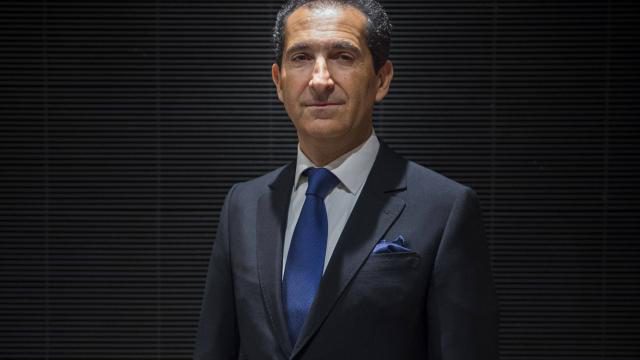 Patrick Drahi’s acquired cable properties in the United States will join a global rebranding under his company’s own brand: Altice.
Patrick Drahi’s acquired cable properties in the United States will join a global rebranding under his company’s own brand: Altice.
Suddenlink, Cablevision/Optimum, SFR-Numericable (France), HOT (Israel), Portugal Telecom-MEO-Sapo (Portugal), and Orange-Tricom (Dominican Republic) will all be called simply “Altice” by the second quarter of 2018.
Cablevision’s Lightpath commercial service will be rebranded “Altice Business” as well.
The global rebranding has begun before Altice USA launches its IPO, expected to attract $1 billion or more that will likely be used to help finance the acquisition of other American cable companies.
Along with a new logo, Altice also introduced its new tagline: “Together Has No Limits” — ironic for a company that continues data capping its Suddenlink broadband customers. Drahi delivered lofty remarks about his aspirations for the new logo and tagline during a closed circuit presentation seen by employees in all the countries where he owns cable companies.
“Our innovations must not make our individual realities smaller, but our collective ambitions greater,” Drahi said. “Not to make individuals more dependent on technology, but more reliant on each other. ‘Together Has No Limits’ is an invitation from the Altice family to come together and build a dream engine that unlocks all of human potential. Together has no limits means ‘let’s learn together, let’s be safe together, let’s be knowledgeable together, and please let’s enjoy!'”
It’s all a part of Drahi’s master plan to dominate the cable and telecom marketplace in the United States. He has freely admitted Altice has started small, but is in no way done making acquisitions and forcing future mergers. In Drahi’s own words, he’s not interested unless he runs the #1 or #2 largest telecom company in a country.
Drahi’s recipe for acquisition success is paying handsomely for acquisitions and then gutting expenses and much of the workforce Drahi considers unnecessary or redundant. After paying $17.7 billion for Cablevision — an amount his critics called excessive, Drahi slashed salaries, closed call centers, and began obsessively scrutinizing expenses. Employees complain morale is low and even the most mundane tasks like keeping the employee break room up and running now requires justifying almost every purchase in management committee meetings that employees fear. Drahi jettisoned much of Cablevision’s senior management, if only because he deemed them overpaid.
Extravagance was never a word used to describe Suddenlink. The smaller operator Drahi also acquired in 2015 is known for serving smaller, more rural and economically distressed markets. But Drahi remains obsessed about cost-cutting there as well.
Wall Street analysts scoffed at Drahi’s claim he would cut nearly $900 million in costs at the two American cable companies. But thanks to his “cut to the bone” strategy, Drahi has touted about $400 million in savings to investors so far, with more to come. While Drahi claims he likes to pay employees “as little as possible,” he has no problem splurging on new acquisitions and upgrading the ones he already owns. To allow his Cablevision property to stay competitive against Verizon FiOS, Drahi has authorized ripping out existing coaxial cable and moving to an all-fiber network instead. Speed upgrades are also underway at Suddenlink that now deliver faster speeds than the much-larger Charter Communications now offers its customers.
In March, Drahi acquired Teads, the number one video advertising marketplace in the world. He intends to precision-target audiences with relevant advertising, which could enhance revenue at his cable TV and online properties. Altice has also been beefing up its content operations, particularly in Europe where Drahi has decided to launch his own cable networks instead of overpaying for other companies’ networks. Domestically, Drahi sees value in expanding Cablevision’s News 12 Networks operation and will import i24, his Tel Aviv, Israel based international 24-hour news and current affairs network to the United States.
Just as he has done in Europe, Drahi has telegraphed how he intends to do business in the U.S.
“I have always been very clear, that first is fixed [cable], then mobile, then content,” Drahi said. “We started in the U.S. with cable. We are too small in cable to go mobile at the moment. But everything is open. We will see.”


 Subscribe
Subscribe
